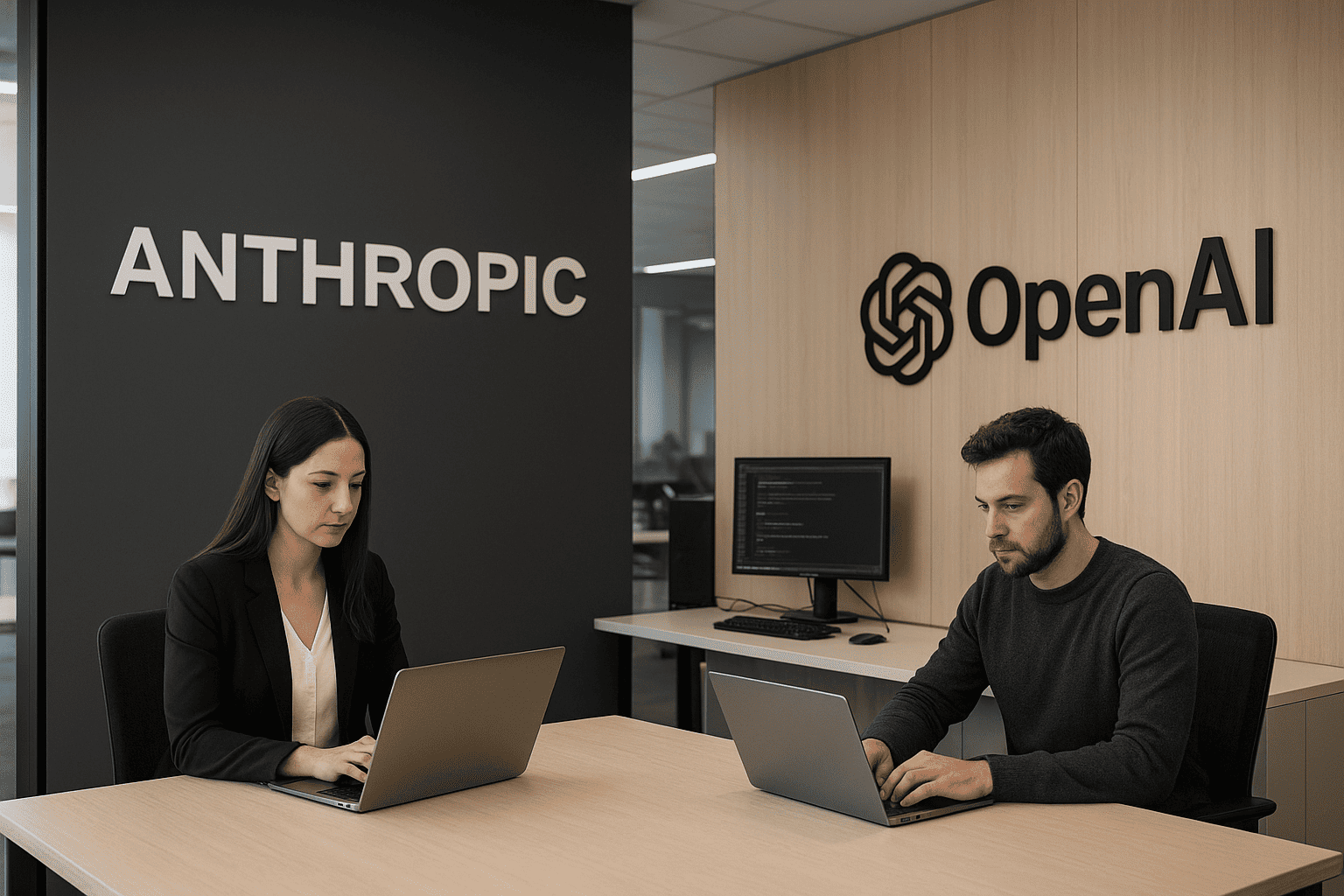Anthropic Edges Ahead: AI Startup Nears Profit Faster Than OpenAI

Anthropic, one of the most promising startups in the generative AI space, is reportedly on track to turn a profit far earlier than its much larger rival, OpenAI. Founded by former OpenAI researchers, Anthropic’s approach emphasizes efficiency, enterprise use cases, and measured scaling. While OpenAI has captured global attention with ChatGPT’s mass appeal, Anthropic’s lean model—anchored by its Claude family of AI assistants—appears to be delivering financial sustainability without the burn rate typical of Silicon Valley’s AI giants.
Background & Context
Founded in 2021 by Dario and Daniela Amodei, Anthropic was born out of concerns about AI safety and responsible scaling. The company’s flagship product, Claude, competes directly with OpenAI’s ChatGPT and Google’s Gemini.
Yet, while OpenAI’s revenues have surged thanks to individual subscriptions and enterprise APIs, its infrastructure costs—especially from running large models on Microsoft Azure—have ballooned into the billions.
In contrast, Anthropic has adopted a slower but steadier path, focusing on developing Claude with cost efficiency and advanced safety mechanisms. This strategy has not only kept operational expenses under control but also strengthened its brand among enterprises prioritizing reliability, privacy, and explainability.
Expert Voices
According to analysts cited by The Information and Reuters, Anthropic’s disciplined capital management and partnership with Amazon and Google Cloud have provided both financial and infrastructural stability.
“Anthropic’s model shows that profitability in AI isn’t about who trains the biggest model—it’s about who uses it most effectively,” said Sarah Kingsley, AI market analyst at Gartner.
Tech investors are also taking note. With funding rounds totaling more than $7 billion and strategic partnerships across cloud providers, Anthropic has diversified risk—unlike OpenAI’s deep dependency on Microsoft.
Market & Industry Comparisons
OpenAI’s estimated 2025 revenue could exceed $3.4 billion, but high compute costs continue to erode margins. Anthropic, meanwhile, has been more selective about deployments, targeting sectors like legal, finance, and customer support—where AI safety and interpretability are critical.
Claude’s recent updates, including Claude 3.5 Sonnet, have drawn praise for their improved context handling and reasoning capabilities—matching GPT-4 in performance while maintaining efficiency advantages.
This has positioned Anthropic as a “premium but practical” alternative for businesses seeking reliable AI integration without heavy cost structures.
Implications: Why This Matters
Anthropic’s profitability milestone—if achieved in 2025—could mark the first time a major AI model company sustains itself without perpetual capital infusion. That shift has major implications:
- It challenges the assumption that large AI models must operate at a loss.
- It validates enterprise-first strategies over consumer mass models.
- It may trigger a re-evaluation of investor priorities, favoring sustainable innovation over growth-at-all-costs narratives.
For enterprises, it signals that AI adoption is maturing from hype to pragmatic implementation, with vendors increasingly expected to deliver ROI—not just technical marvels.
Challenges & Limitations
Anthropic still faces the daunting task of competing with OpenAI’s scale, developer ecosystem, and integration through Microsoft products like Copilot. Moreover, its reliance on partnerships for compute resources could limit flexibility compared to vertically integrated rivals.
Maintaining profitability while continuing to invest in cutting-edge research—especially in alignment and interpretability—will test the company’s balance between innovation and financial discipline.
What’s Next
As AI regulation tightens globally and cloud providers race to offer “AI-as-a-Service,” Anthropic’s business model could become the blueprint for sustainable AI growth. Analysts expect Anthropic to expand its Claude API suite, deepen enterprise integrations, and possibly launch an on-premise or private-cloud solution for compliance-heavy sectors.
If successful, Anthropic’s approach may set a precedent for a new wave of “lean AI giants”—companies prioritizing precision, safety, and fiscal responsibility over pure hype cycles.
Our Take
Anthropic’s trajectory underscores a critical evolution in the AI landscape—from experimental innovation toward financial and operational sustainability. By balancing ambition with restraint, the company could redefine what “responsible AI” means not just ethically, but economically. In a sector notorious for billion-dollar burn rates, Anthropic’s disciplined path might just become the smarter playbook for the next generation of AI enterprises.